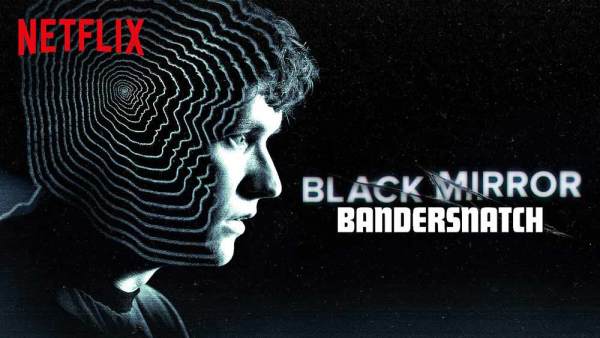BY MARIAH HALL By now the lingering haze of post-holiday goodwill has probably been ruined at the hands of Charlie Brooker and the all-consuming technological hell that is Black Mirror. In case you’ve somehow missed the internet hype, I’ll fill you in: Black Mirror: Bandersnatch is a choose-your-own-adventure special, where viewers are presented with two options at poignant points in the movie, each choice branching off into a completely different chain of events. Set in 1984, the story follows Stefan Butler, a programmer designing an interactive video game, an adaptation of a fantasy novel called Bandersnatch, by a writer who eventually went insane and murdered his wife.
Bandersnatch gives the illusion of god-like power. The initial choices seem inconsequential— you decide what brand of cereal he eats for breakfast and what music he listens to. The first life-altering choice is whether to accept an offer to work for a major gaming company. Further down the timeline, you’re given the option to reveal to Stefan that he’s being controlled by someone watching Netflix in the 21st century, a classically metaphysical touch. The story proposes the potential of parallel realities existing at once, much in the vein of Donnie Darko— there’s even a scene where Stefan crawls through the bathroom mirror to alter a past childhood memory.
The “goal” for us players is for Stefan to create a successful game and win a five-star review from a nerdy television critic. However, you’re only doomed to get stuck in loops of reversals and do-overs, until it becomes impossible to keep track of a linear plotline. You get sucked in, unable to resist the urge to jump back in and try again after that “gameover” moment. But there is no way to win, only an elaborate tangle of bad endings. Some of them feel cliché: after a paranoid LSD trip in which he watches his friend jump from a balcony to his death, Stefan wakes up from a dream; in another scenario, the camera zooms out to find that he’s been acting in a movie all along.
After exploring multiple plots and throwing the remote in frustration, it’s hard not to feel like this is just Netflix playing a practical joke, as if someone asked, “How can we get people to never stop watching TV?” and this was the answer. Or it feels like a social experiment, your choices being used to survey the kind of person you are— will you “Kill Dad” or “Back Off,” fight your therapist to the death or escape through a window? Will you do everything in your power to help the protagonist, or make his life increasingly more difficult until he descends into insanity for your own entertainment?
As it always does, Black Mirror forces us to reflect on our own lives through examining the ways technology and human nature intersect. The nightmarish realities it proposes feel like an inevitably nihilistic (not-so-distant) future. This jaunt into the past leaves your head spinning with questions: Is time a construct? Are multiple realities possible? Do we actually have autonomy over our decisions, or is everything just fate? Bandersnatch suggests multitudes of possibilities with no definite answer. Just like the real life.

